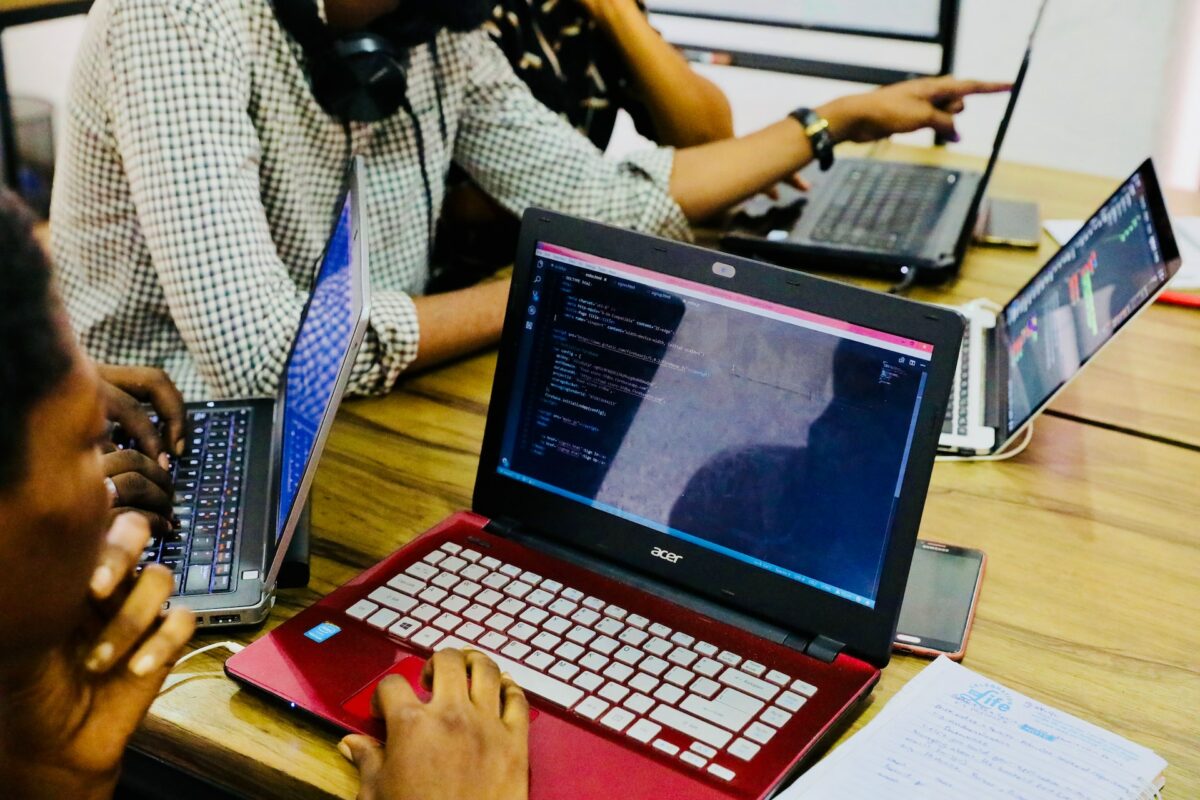Outsourcing development is a fast-evolving trend in the IT industry. Global software outsourcing shares around a third of the overall software development market, according to trusted sources such as Statista.
Many businesses across multiple industries turn to the services of reliable outsourcing software development company seeking to leverage external expertise, increase efficiency, and reduce costs during the development process.
However, one of the key challenges when companies make a choice in favor of outsourcing solutions is establishing effective communication channels between clients and vendors.
The success of the whole development process entirely hinges on the ability to overcome communication barriers, bridge cultural differences, and ensures seamless collaboration across geographically dispersed teams.
So, let’s try to unravel the secrets to breaking barriers and mastering effective communication during the offshore development process.
Importance Of Successful Communication In Software Outsourcing
In this particular case, we don’t need to reinvent the wheel. Efficient communication is a keystone of any type of collaboration; however, when it comes to the smooth cooperation of two teams that can be located thousands of kilometers from each other, it is just a matter of the project’s survival.
Communication plays a pivotal role in managing expectations, clarifying requirements, and resolving issues promptly.
Effective communication means that all involved parties have a common understanding of project requirements, goals, and expectations, as well as the problem-solving process.
Both parties, the client and the outsourcing services provider, should clearly define the practices that would be used in the further collaboration and adhere to them later in order to avoid miscommunication.
By establishing effective communication channels and fostering a culture of open dialogue, organizations can reap numerous benefits contributing project’s overall success.

Common Challenges in Communications With Outsourcing Software Development Companies
First of all, you should understand the set of challenges specific to the situation when the software development is delegated to the third-party vendor. The very nature of outsourcing development determines some of these issues.
Geographical And Cultural Differences
Two teams span across different geographical locations and cultural backgrounds, especially when it comes to offshore development with a remote team on another continent, for instance.
These disparities may lead to misunderstandings, varying work styles, and differences in communication norms.
Addressing challenges requires cultural sensitivity, awareness, and fostering a collaborative environment valuing diverse perspectives.
Language Barriers
Although a fluent level of English, considering both communicational and technical working processes are mandatory for most outsourcing agencies, language barriers can still hinder the efficiency of communication.
Although the problem is not so widespread nowadays, especially when choosing a reliable development partner, ensuring that all parties accurately convey and understand information is essential.
Time-zone Differences
Time-zone disparities pose a significant challenge in the case of offshore development. Well, the scale of the problem will largely depend on the geographic proximity.
However, you should consider that the most significant outsourcing destinations are still located in South America, Eastern Europe, the Indian subcontinent, and South-East Asia.
At the same time, most of the demand still comes from North America and Western Europe, resulting in limited overlapping working hours.
Establishing effective scheduling practices, prioritizing timely communication, and leveraging collaborative tools to facilitate asynchronous communication and real-time updates are important measures to collaborate effectively despite the difference in time.
Lack Of face-to-face Interaction
Although remote jobs have become world-spread practice recently, the absence of face-to-face can still impede effective communication.
While it may not be that important for software engineers, face-to-face communication is still essential for effective management.
Video conferencing and virtual meetings can slightly smooth touch; however, in most cases, face-to-face actions are unavailable in outsourcing projects, and it’s worth considering.
Best Practices And Strategies For Effective Communication In Software Outsourcing
Several straightforward strategies can help overcome communicational challenges and foster collaboration and understanding among both sides.
You can easily enhance efficiency, reduce risks of miscommunication, and contribute to successful project outcomes by following these practices:
1.) Clear And Comprehensive Project Requirements
Setting project requirements and goals clearly and directly serves as a foundation for effective collaboration.
It is crucial to establish a detailed scope, deliverables, timelines, and the final expectations of the project at the very early stages of the project.
Clarity ensures that all team members have a shared understanding of the project’s final goals, minimizing misunderstandings and reducing the risk of rework or delays.
2.) Establishing Communication Channels And Protocols
Reliable and efficient communication channels and protocols are essential for effective collaboration in software outsourcing.
This point includes strict determination of preferred communication methods, including instant messaging, video conferencing, and project management platforms.
You can additionally define response times, informing procedures, and guidelines for all kinds of communication to ensure smooth workflow.

3.) Regular And Structured Updates And Progress Reports
Regular progress reports are important for keeping all stakeholders informed about the project’s current status.
Establishing a structured reporting mechanism, such as weekly status meetings or progress dashboards, provides transparency and visibility into the project.
It facilitates timely decision-making, identifies potential risks or bottlenecks, and allows necessary adjustments to keep the project on track.
4.) Encouraging Open And Honest Dialogue
Creating an environment encouraging openness and honesty in dialogue is more about an approach than a practice, but it’s still highly effective.
Both sides should feel comfortable expressing their opinions, concerns, and ideas openly. Promoting a culture of constructive feedback and active participation fosters innovation, problem-solving, and continuous improvement throughout the outsourcing engagement.
5.) Cultural sensitivity and awareness
Being mindful of cultural differences in communication styles, hierarchy, and decision-making process helps foster inclusive and respectful communication.
Considering two sides usually comprise members with diverse cultural backgrounds, it helps promote understanding and minimize conflicts.
6.) Assignment Of Responsibilities On The Client Side
It is important for businesses working with development outsourcing partners to establish the assignment of responsibilities on their side.
The situation when the offshore software engineer communicates each time with different company representatives can be quite confusing.
In this case, the excellent approach is to form your team, including just one or two persons with limited responsibilities, and have some sort of project manager from your side.
Final Thoughts
Effective communication is an absolute necessity for success in software development outsourcing.
The challenges posed by geographical, time, language, and cultural differences can significantly impact the project’s overall success.
However, by prioritizing clear and comprehensive project requirements and workflow, fostering a culture of honesty and transparency as well as encouraging open dialogue, all of these differences will not become a nuisance.
Using straightforward but effective communication practices, you can easily link remote teams and unlock the full potential of outsourcing partnerships.
Ella Marcotte
Latest posts by Ella Marcotte (see all)
- UA vs GA4: The 4 Big Differences You Need To Know - April 8, 2024
- Understanding The Role Of Control Valves In Industrial Automation - April 8, 2024
- How Automation Can Boost Your Business Outcomes - April 4, 2024




